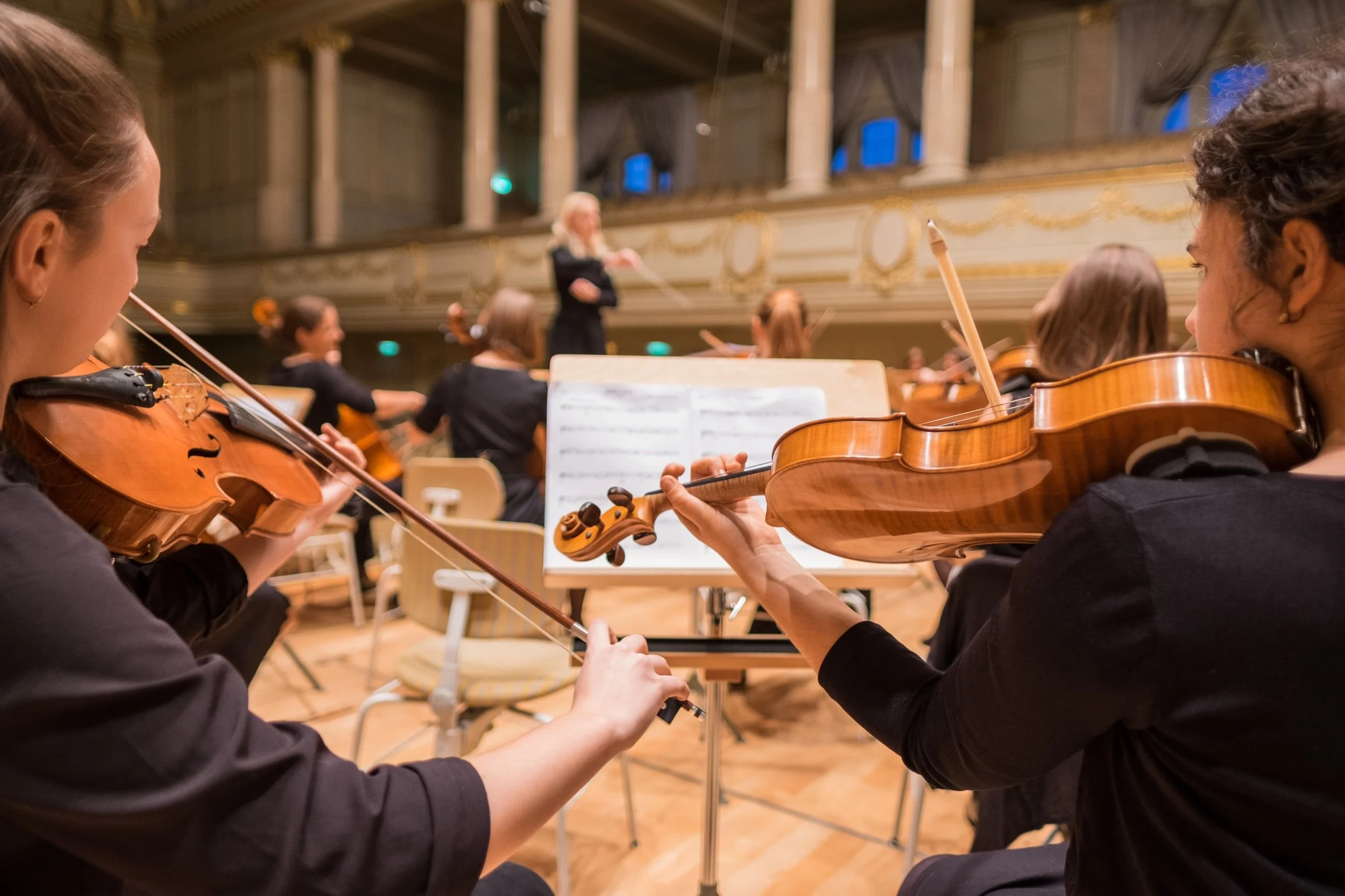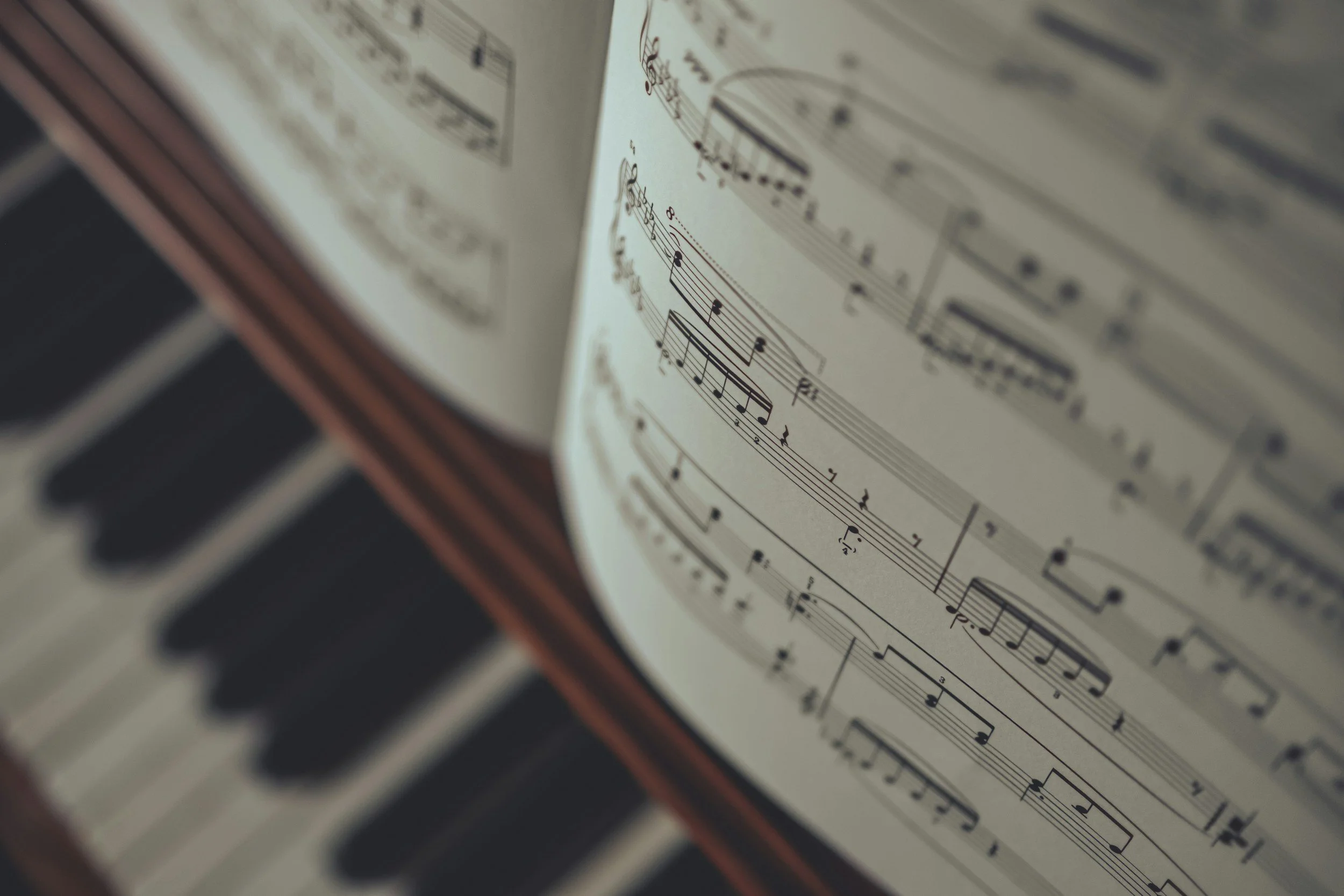Musical performance can seem like an unnecessary hassle, and can generate feelings of trepidation and worry. However, they are very important to developing a musician’s abilities.
Why is it important for students to participate in performance?
Perhaps the number one argument for the inclusion of performance into any student’s musical study is that it builds confidence. Having a measurable goal for a student to work towards (i.e. “I want to perform the first movement of a Beethoven Sonata”) is essential in any form of practice. How can a student demonstrate their learning if there isn’t some sort of assessment in place? Attaining that measurable goal can help a student recognize his or her skills, in addition to providing that essential assessment factor for the instructor.
The thrill of applause is another excellent benefit students acquire when engaging in performance. Music is, at its core, an expressive art form. Performing enables students to connect with others on a completely different level. Students who perform gain essential skills that can aid them with later public speaking or presentation requirements in school and beyond.
Performance can also be fun! There is no feeling of accomplishment greater than doing something hard and being successful at it. Participating in a performance isn’t easy, that is for certain. But, knowing the difficulty and accomplishing one’s goals anyway helps solidify a sense of self worth and enduring success, musical and otherwise.
Connecting with an audience through musical performance can help students develop many important skills!
Helpful Tips for Dealing with Performance Anxiety
Performance anxiety is a common issue many musicians deal with. Some have more problems with it than others, but most performers have experience with some type of nerves before a concert. Making use of some of the following tips can help musicians prepare for and hopefully combat some of the effects of these anticipatory nerves.
Practice! The more you prepare for a concert or event, the easier the actual performance is likely to be and the less likely you are to make a mistake.
Get plenty of sleep and try to avoid too much caffeine. Jitteriness and racing thoughts are common symptoms of performance anxiety and can be increased with too much caffeine intake.
Breath is a wonderful medicine! Practice taking deep breaths before you begin playing. This can help lower the heart rate and slow numerous other symptoms of panic.
Try to focus on the positives. Performing can be fun! Making music with a group or soloist is a wonderful way to connect to others and the satisfaction you will feel at the end is worth it!
These tips won’t always work for everyone, but it’s worth trying them out! Check out the following websites if you are interested in reading more about performance anxiety’s causes along with some strategies for conquering it.
https://www.webmd.com/anxiety-panic/guide/stage-fright-performance-anxiety
https://psychcentral.com/health/how-to-break-the-cycle-of-performance-anxiety
https://adaa.org/understanding-anxiety/social-anxiety-disorder/treatment/conquering-stage-fright
Performing can be so much fun!
No matter how you look at it, the point of musical performance is positive. It serves as a method to demonstrate and share successful skill acquisition. Concerts are excellent ways to measure goals and achievement, for both performers and their teachers. Finally, performing in musical events assists musicians in confidence building, interpersonal connections, and self expression!
-Charissa Garrigus, Instructor at Vibe Music Academy







